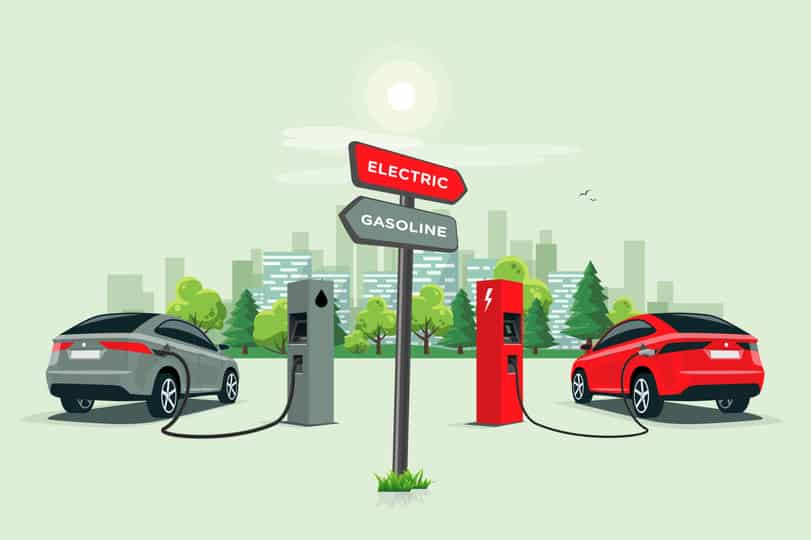Electric vehicles are increasingly seen in Quebec and Canada. Governments have a lot of ambition for the future, concerning the use of those vehicles by the population. Still, some things might get in the way of their projects.
The federal Liberal government plans to stop selling gas-powered vehicles in Canada by 2035 except for emergency vehicles like police, ambulance, and fire. People using gas-powered vehicles won’t have to change their vehicle for an EV but all new cars sold should be electric by then according to the government’s predictions and hopes.
According to a government analysis of 2022, switching to electric vehicles could prevent about 430 million tonnes of greenhouse gas emissions from being released. It could also prevent enough gasoline to fill 73,000 Olympic swimming pools to be consumed.
Some environmentalists and local Indigenous people have had concerns about the lithium mine project in Quebec which needs to occur to produce lithium-ion batteries. This project could have an impact on some of the purest water in North America. Still, environmentalists say that fossil fuels also have a harsh impact on the environment during the extraction and the emissions following.
“What we’re proposing is that, by 2035, we progressively make it easier and easier to buy electric vehicles,” Environment Minister Steven Guilbeault told CBC’s Power and Politics. However, in Quebec, the program Roulez Vert, whose goal is to encourage people to buy electric cars, will gradually end until its official termination in 2027. This program founded in 2012, gives consumers who buy a new 100% electric car a 7000$ subsidy and a 5000$ subsidy to consumers who buy a new plug-in hybrid (with a battery capacity of at least 15 kWh). The Minister of Finance announced that the subsidies will be reduced progressively throughout the years until none are given by January 1, 2027.
The dealers believe an increase in demand will occur since people will want to take advantage of the discounts until they are gone but “the end of the program does not bode well in the longer term” the Corporation of Quebec Automobile Dealers (CCAQ) believes. Some others believe the end of the program will force the dealers to reduce their prices, however, Ian P. Sam Yue Chi, CEO of the CCAQ thinks that because of the competition between the dealers, they will not reduce their prices. “We anticipate a slowdown in the greening of the automobile fleet in Quebec, explains Mr. Ian P. Sam Yue Chi. We think that there will be Quebecers who will have difficulty acquiring these vehicles soon.”







